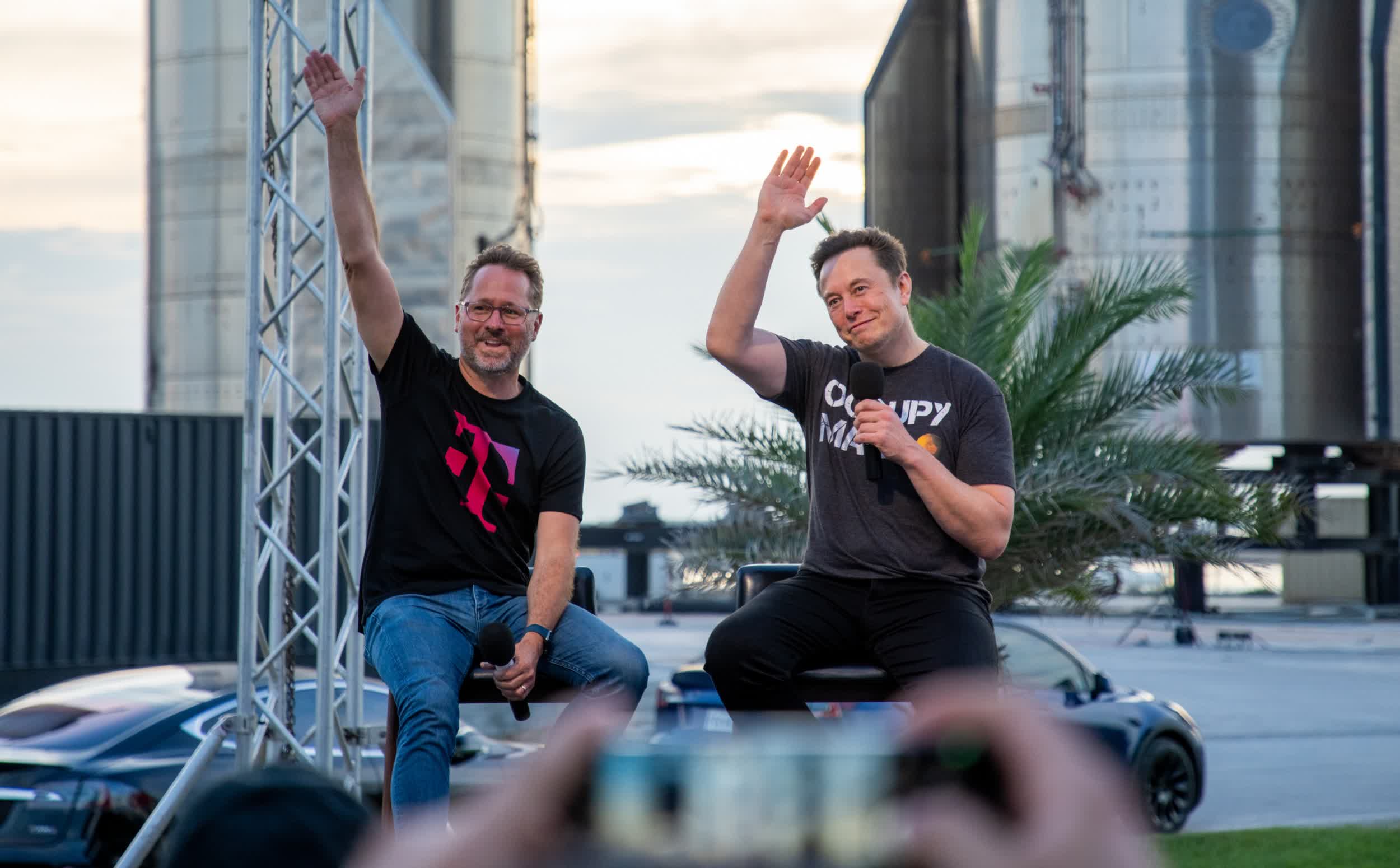In a nutshell: T-Mobile and SpaceX have joined forces to leverage the latter's constellation of low Earth orbit (LEO) satellites to expand cellular coverage beyond the reach of traditional cell towers. Only text-based communication will be supported at first but eventually, voice and data could be added to the equation.

T-Mobile said more than half a million miles in the US are uncovered by cell signals from any provider. These mobile dead zones exist mostly because of land-use restrictions (national parks, for example) as well as terrain limitations (mountains and deserts) and the sheer vastness of the US.
To remedy the situation, the two companies are creating a new network that will broadcast from Starlink's satellites using T-Mobile's mid-band spectrum. Most smartphones on T-Mobile's network will be compatible with the new service using existing radios, meaning there will be no extra equipment to purchase.
The service will enter beta testing in select regions by the end of next year following SpaceX's planned satellite launches. Once live, it should provide T-Mobile customers with text coverage practically everywhere in the continental US as well as in Hawaii, parts of Alaska, Puerto Rico and territorial waters, so long as the user can see the sky. Musk said it will also likely work in your car or if your phone is in your pocket.
Support will extend to SMS, MMS and participating messaging apps, we are told. Later, the companies will look to add voice and data coverage to the mix.
T-Mobile CEO Mike Sievert said their "vision" is for the service to be included for free as part of its most popular service plans but added that this is not an official announcement (meaning plans could change between now and then). For lower-cost plans, they may charge a monthly service fee but Sievert said it would be far more affordable than today's satellite connectivity services.
The two companies also issued an open invitation to other carriers around the world to collaborate with them for "truly global connectivity." T-Mobile said it will offer reciprocal roaming to providers willing to work with them to enable that vision.
Rumors ahead of last year's iPhone 13 debut suggested the handsets would support LEO satellite communications courtesy of a partnership with Globalstar but that never materialized.
https://www.techspot.com/news/95778-t-mobile-use-starlink-satellites-blanket-us-text.html
